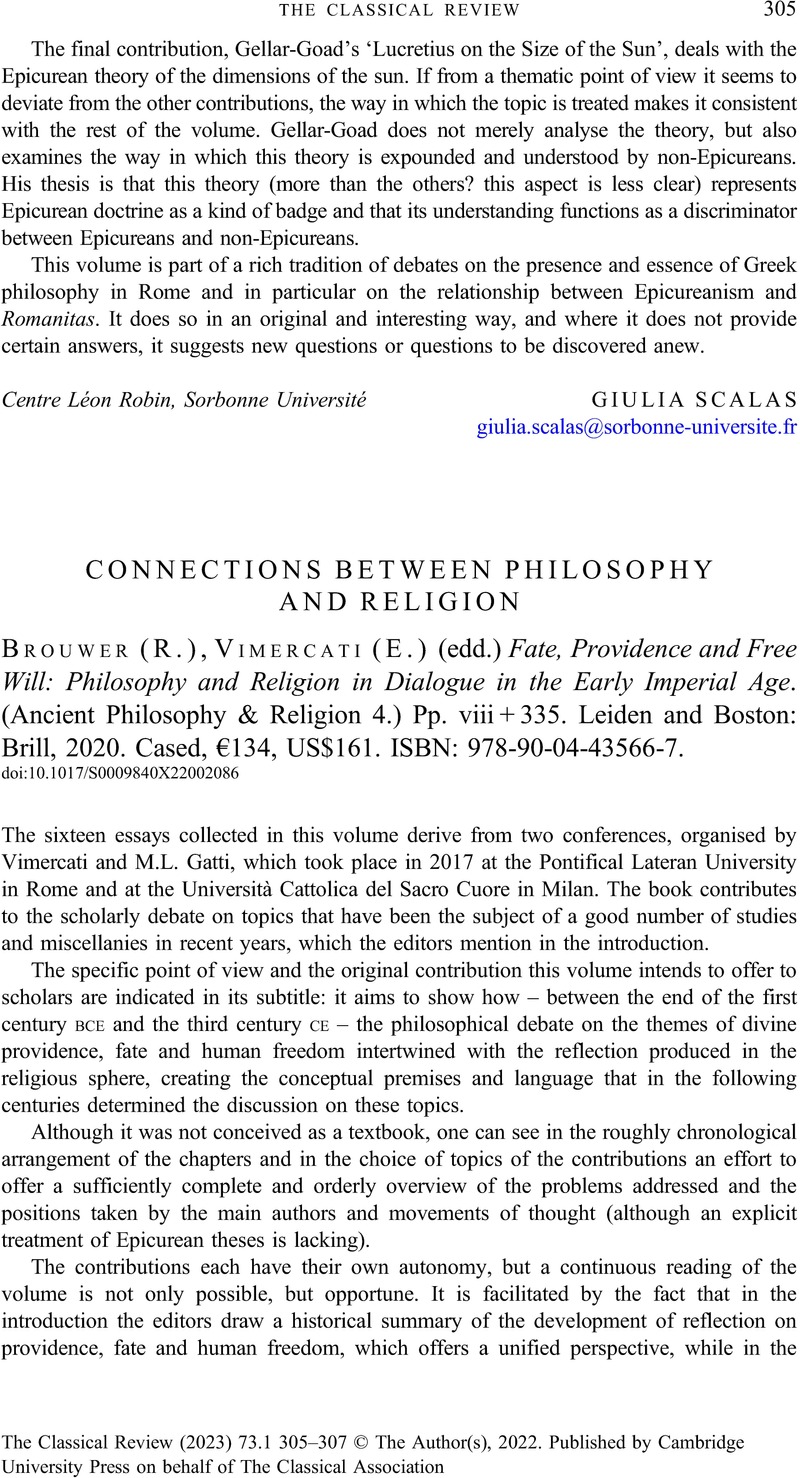No CrossRef data available.
Article contents
CONNECTIONS BETWEEN PHILOSOPHY AND RELIGION - (R.) Brouwer, (E.) Vimercati (edd.) Fate, Providence and Free Will: Philosophy and Religion in Dialogue in the Early Imperial Age. (Ancient Philosophy & Religion 4.) Pp. viii + 335. Leiden and Boston: Brill, 2020. Cased, €134, US$161. ISBN: 978-90-04-43566-7.
Review products
(R.) Brouwer, (E.) Vimercati (edd.) Fate, Providence and Free Will: Philosophy and Religion in Dialogue in the Early Imperial Age. (Ancient Philosophy & Religion 4.) Pp. viii + 335. Leiden and Boston: Brill, 2020. Cased, €134, US$161. ISBN: 978-90-04-43566-7.
Published online by Cambridge University Press: 29 September 2022
Abstract
An abstract is not available for this content so a preview has been provided. Please use the Get access link above for information on how to access this content.

- Type
- Reviews
- Information
- Copyright
- Copyright © The Author(s), 2022. Published by Cambridge University Press on behalf of The Classical Association



